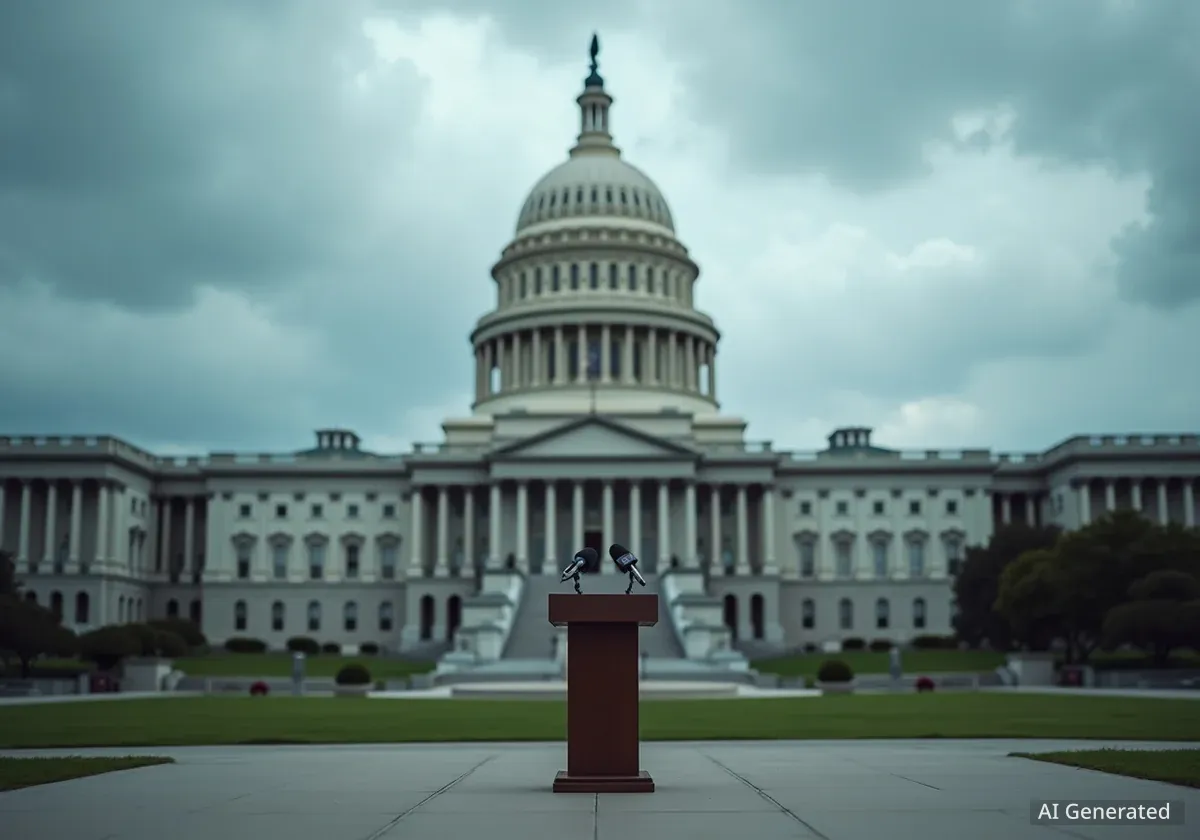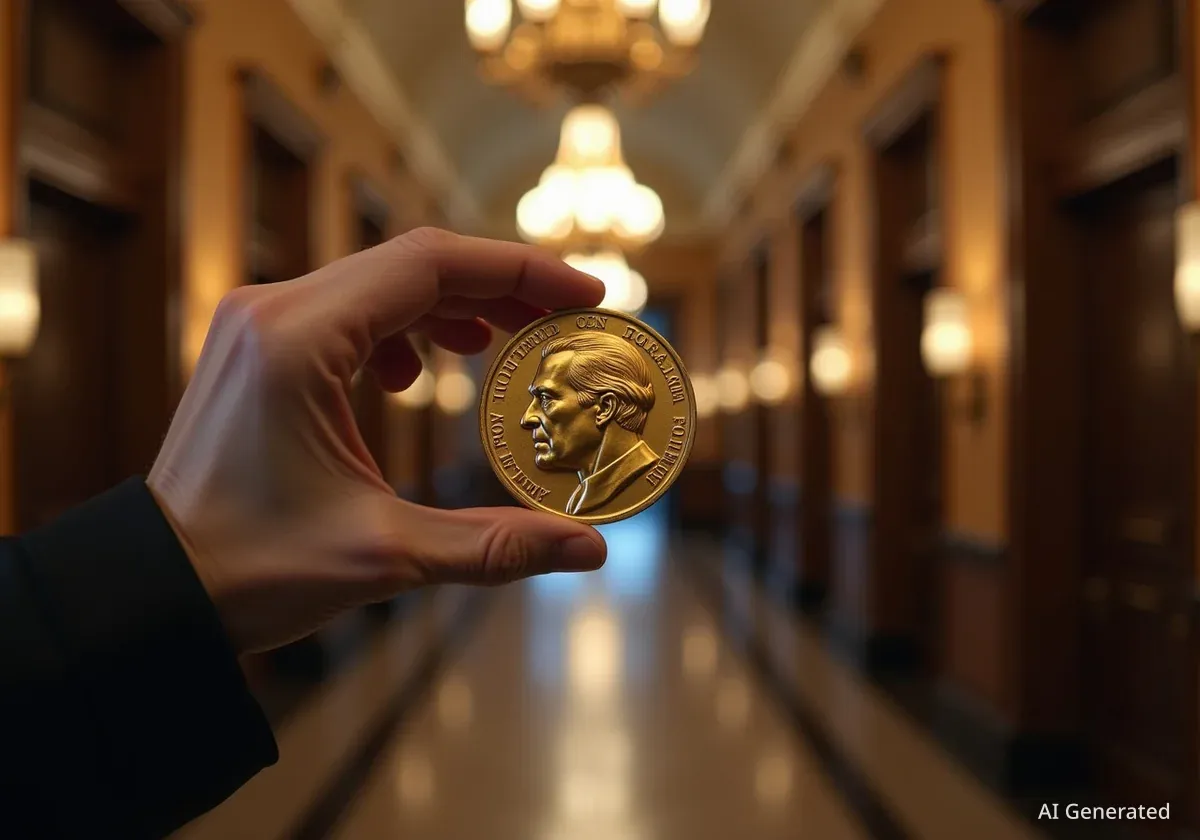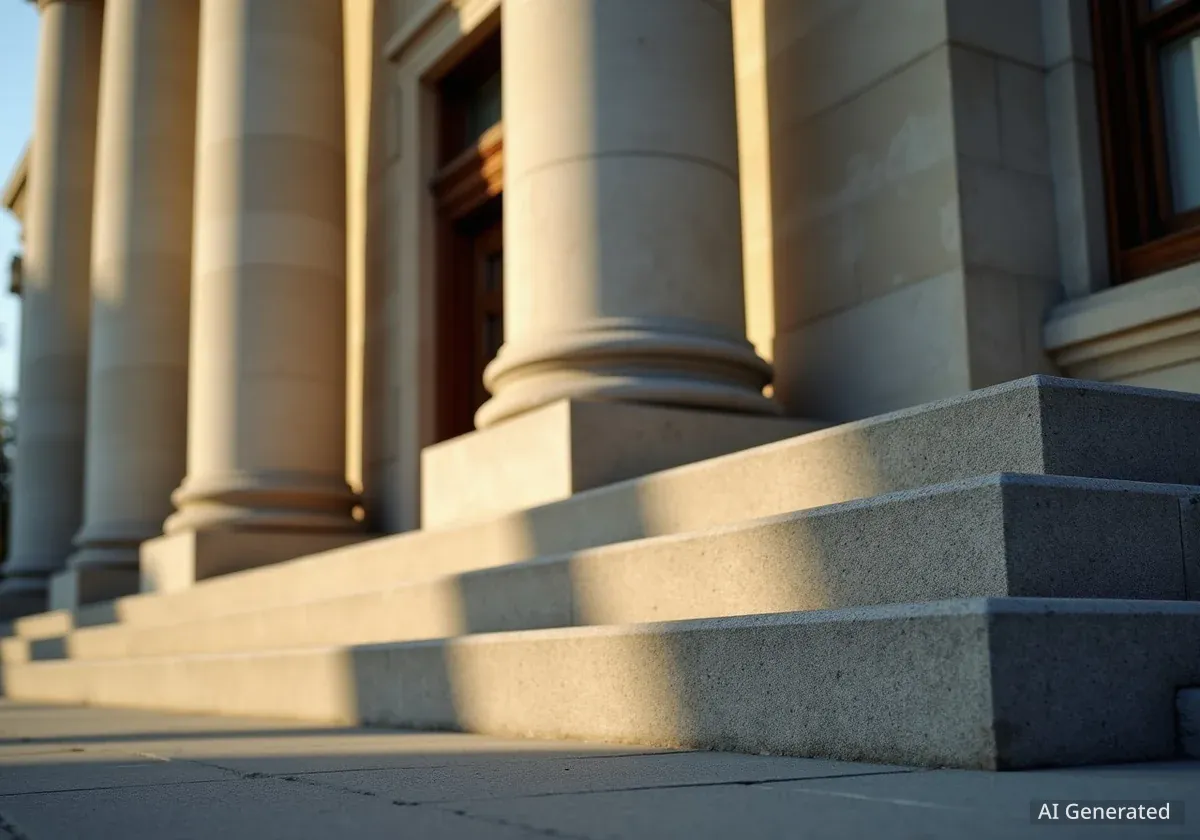Minnesota Governor Tim Walz has strongly criticized an AI-generated video shared by President Donald Trump on social media, labeling the post as "outrageous." The video, which digitally altered images of Democratic leaders, was posted on Truth Social amid discussions surrounding a potential federal government shutdown.
Key Takeaways
- President Donald Trump shared an AI-generated video mocking House Minority Leader Hakeem Jeffries and Senate Minority Leader Chuck Schumer.
- Minnesota Governor Tim Walz, the Democratic vice presidential candidate, described the post as "outrageous."
- Representative Jeffries called the video, which featured stereotypical imagery, "bigoted and racist."
- Vice President JD Vance defended the video as "funny," while the White House Press Secretary said the president enjoys sharing memes.
Details of the Social Media Post
The controversy centers on a video clip posted to President Trump's Truth Social account. The content was created using artificial intelligence to produce what is commonly known as a deepfake. This technology manipulates or generates visual and audio content to create a false but realistic-looking video.
In the clip, House Minority Leader Hakeem Jeffries (D-New York) is depicted with a digitally added mustache and sombrero. Senate Minority Leader Chuck Schumer (D-New York) also appears in the manipulated video. According to reports, the post included mariachi music and dubbed audio of Schumer making negative remarks about his own party.
Context of the Post
The video was shared as lawmakers in Washington faced a looming federal government shutdown. The imagery and theme of the video appeared to reference a Republican talking point which claims that Democrats were willing to halt government operations to provide free healthcare to undocumented immigrants.
Political Reactions Emerge
The post quickly drew responses from prominent political figures across the aisle, highlighting a deep divide in how the use of such content is perceived in political discourse.
Condemnation from Democratic Leaders
Minnesota Governor Tim Walz, who is also the 2024 Democratic vice presidential candidate, expressed his disapproval during a press conference. He focused on the timing of the post in relation to the serious nature of a government shutdown.
"It is outrageous to me that we’re sending out memes, we’re laughing at people, we have people being furloughed, we have programs being cut, and these people are still receiving a paycheck," Walz stated.
House Minority Leader Hakeem Jeffries, who was a subject of the video, condemned its content directly. He described the post as both "bigoted and racist." Beyond the offensive nature of the content, Jeffries criticized the lack of seriousness from the opposition during a critical time for the country.
"I’m not going to dwell on the president’s erratic behavior in terms of the meme or the AI deepfake videos," Jeffries said. "The broader problem is it’s deeply unserious, and this is a serious moment. We need to reopen the government."
What is a Deepfake?
A deepfake is a form of synthetic media where a person in an existing image or video is replaced with someone else's likeness. The technology uses deep learning, a type of artificial intelligence, to create convincing fake videos that are often difficult to distinguish from authentic footage.
Defense from the Administration
Conversely, members of the Trump administration defended the president's actions. Vice President JD Vance dismissed the controversy, framing the video as a form of political humor.
"Oh, I think it’s funny," Vance commented. "The president’s joking and we’re having a good time. You can negotiate in good faith while also poking a little bit of fun at some of the absurdities of the Democrats’ positions and even, you know, poking fun at the absurdity of the Democrats themselves."
This sentiment was echoed by the White House. When questioned about the AI-generated post, Press Secretary Karoline Leavitt stated that President Trump frequently shares such content online. Leavitt called it "quite refreshing that we have a president who is so open and honest directly."
The Broader Implications of AI in Politics
This incident is part of a growing trend where AI-generated content is used in political messaging. Experts have raised concerns about the potential for deepfakes and other forms of synthetic media to spread misinformation and mislead voters. The technology allows for the creation of highly realistic but entirely fabricated scenarios, which can be used to discredit opponents or create false narratives.
The use of such content, especially by high-profile figures like the President of the United States, raises important questions about the standards of political communication. While some view it as a modern form of political satire, others see it as a dangerous tool that erodes public trust and coarsens political debate, particularly when it relies on stereotypes.
As the 2025 events unfold, the role of artificial intelligence in shaping public opinion and political campaigns is expected to become an even more significant topic of discussion and potential regulation.





